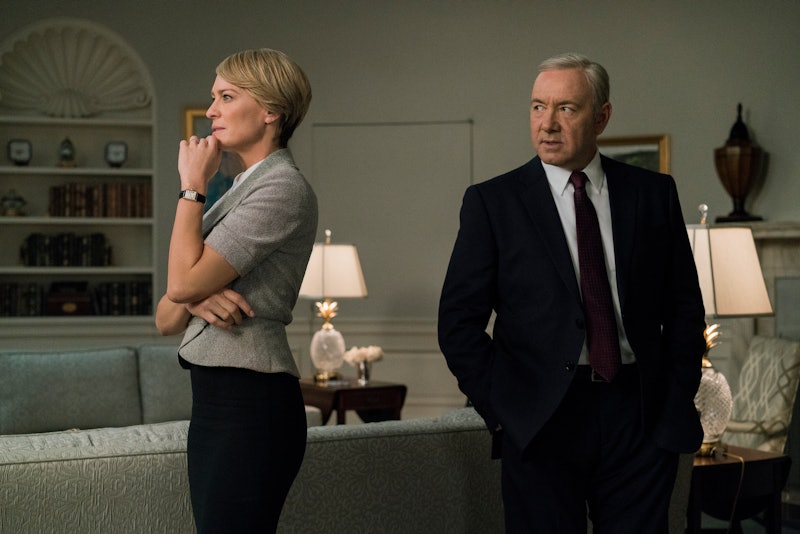Life
This New Database Flags Movies Starring People Who Have Been Accused Of Sexual Assault

If you’re looking to avoid watching movies and shows associated with some of the many people accused of sexual misconduct in the last few months, there’s now a website that will help you do it with a click of a button. The cleverly named Rotten Apples is a database of movies and TV shows linked to people accused of alleged sexual misconduct in Hollywood. By simply searching the name of a film or show, you can check to see whether a person who’s been accused of sexual misconduct is tied to that project.
“The goal of this site is to further drive awareness of just how pervasive sexual misconduct in film and television is,” a page on the Rotten Apples website states. When you type in the name of a movie or show, the site will let you know if your result is “fresh” (free of any known affiliation to anyone accused of alleged sexual misconduct) or “rotten.” For those labeled “rotten,” the site lists the name of the person or people accused, their role in the film or show, as well as a link to an article sourcing the accusation.
For example, when you search House Of Cards, Kevin Spacey — who has been accused of sexual misconduct by 15 different people since Oct. 29 — pops up along with the words "Rotten Apples". (Spacey issued a statement regarding the accusation that he sexually assaulted then 14-year-old actor Anthony Rapp in 1986 saying he was "beyond horrified" and "honestly [did] not remember the encounter"; he has not responded to other accusations made since, although a rep issued a statement saying, "Kevin Spacey is taking the time necessary to seek evaluation and treatment.")
The database isn’t perfect or completely comprehensive, as its creators acknowledge on the site. However, when a show comes up as “fresh,” you have the option to notify those managing the database with a correction if you believe they’ve missed someone. The site creators appear to be amending those errors quickly, too.
The people it tracks are also limited to those who are a “cast-member, screenwriter, executive producer or director” in whatever show or movie you’re searching. As Jaya Saxena notes in her write-up for GQ, receiving a “fresh” rating via the database doesn’t necessarily mean what you’re watching is free of sexism, racism, etc. (Breakfast at Tiffany’s may not feature any known sexual predators but that doesn’t make Mickey Rooney’s yellow-face performance any more OK.)
In addition to showing how pervasive a problem sexual assault and harassment are in the entertainment industry, the site also states its goal is “to help make ethical media consumption easier.” While the intent of the database is not “to serve as a condemnation of an entire project,” as the creators also write, it does give audiences a tool to avoid projects tied to... well, tools.
The question of whether we can and should separate the art from the artist is certainly a valid one, but it isn’t new.
Too often, the conversation seems to be driven primarily by a desire to assuage one’s own discomfort rather than actually talk about how to hold allegedly predatory people accountable for their actions. We are perpetually granting forgiveness in exchange for whatever talent, skill, piece of art that person has previously given us. Why is wondering whether we can still enjoy these movies and shows associated with men accused of alleged misconduct one of the first questions we ask? Why are we so ready to do the mental gymnastics it takes to continue valuing these shows and movies and things? And are we granting the same time and attention to the experience, the story of the victim?
Writer Ijeoma Oluo wrote about due process and sexual harassment for The Establishment, and it is well worth the 12 minutes Medium says it will take you to read. “I’d love to write about the countless women whose careers were ended by coming forward with the abuse they faced,” Oluo writes, “about the countless women whose careers were never able to get off of the ground because of abuse and gender discrimination.” Rather than mourn the loss of these previously celebrated people, perhaps it’s time we start paying attention to those who never had the chance to be heard, let alone celebrated, in the first place.